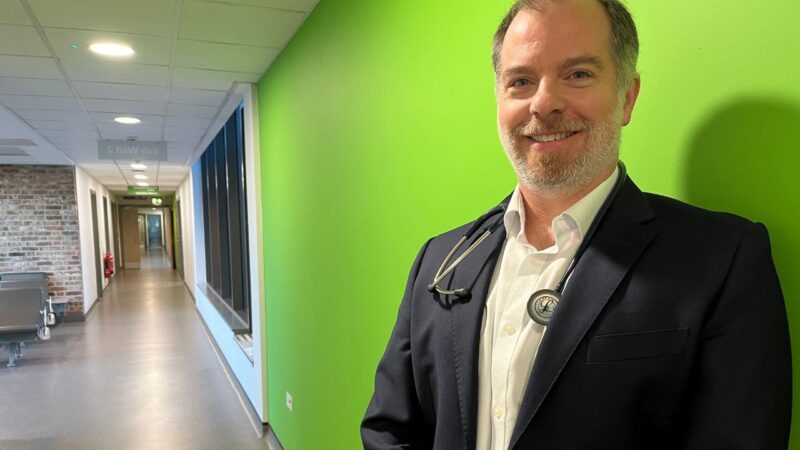“I had a patient who had an Echo – an ultrasound of the heart – which showed a potential issue,” explains Dr Matt Davis. “I was able to message the cardiologist with the report, and some more clinical details, to ask if any action was needed. The advice was to repeat the test in a year.
“It’s hugely useful to be able to quickly access expert advice rather than the patient waiting months for an outpatient appointment to be told the same thing.”
The advice and guidance scheme means GPs can send secure online messages to consultants through the same system as they use to make a referral. Notes, test results, photos and other relevant information can be attached and responses come back within a few days – often in 24 hours.
It means GPs can get an expert opinion on whether a referral to hospital is needed along with advice about treating the patient in their own practice.
It’s hugely useful to be able to quickly access expert advice rather than the patient waiting months for an outpatient appointment to be told the same thing.”
All of south west London’s 170 GP practices are taking part in the scheme. Since April 2025, more than 35,000 advice and guidance requests have been made across south west London, or more than 5,000 per month.
Matt explained: “If you’re not sure whether someone needs to be referred, or if you know you only need advice, it’s a great way of securely transmitting that query directly to a consultant. It’s trackable, and much more secure than sending an email. And there’s an option for the consultant to convert that query directly to an appointment – so if a referral is deemed necessary you don’t need to start all over again.”
Matt sees patients three days a week at the Nelson Medical Practice in Merton. On average, he uses advice and guidance once a week and has numerous examples of its benefits.
“It removes greyness and ambiguity in certain scenarios. When blood tests confirmed a very overactive thyroid in one of my patients, advice and guidance provided rapid access to an expert opinion allowing me to start treatment immediately, helping to alleviate their symptoms more quickly.”
advice and guidance provided rapid access to an expert opinion allowing me to start treatment immediately, helping to alleviate their symptoms more quickly.”
Dermatology is one area where the scheme is extremely useful, as outpatient waiting times can be very long. “I had a child with an unusual rash, but who was otherwise well. I was able to send photos to a dermatologist who got back to me within 48 hours with advice. I could more confidently manage the case and feed back an expert opinion to the parents. It saved a hospital appointment and provided a lot of reassurance.”
According to Matt: “A big advantage is that it is also a form of real-time learning and training. We do get that through an outpatient clinic letter but there’s often a time lag of months between the referral and receiving the letter. With advice and guidance, the response is so quick that the case is still fresh in your mind and helps your future management of similar patients.”
With advice and guidance, the response is so quick that the case is still fresh in your mind and helps your future management of similar patients.”
The advice and guidance scheme is an example of how the NHS is shifting care from hospital to community, as part of its 10 Year Health Plan. While many of the issues dealt with are small and routine, multiplied across practices and patients, the scheme is making an impact.
It is also about better communication across the NHS, as Matt explains. “It’s a more direct form of communication with our consultant colleagues, and really enhances that relationship, which is going to be one of the keys to making the whole system work better going forwards.”
